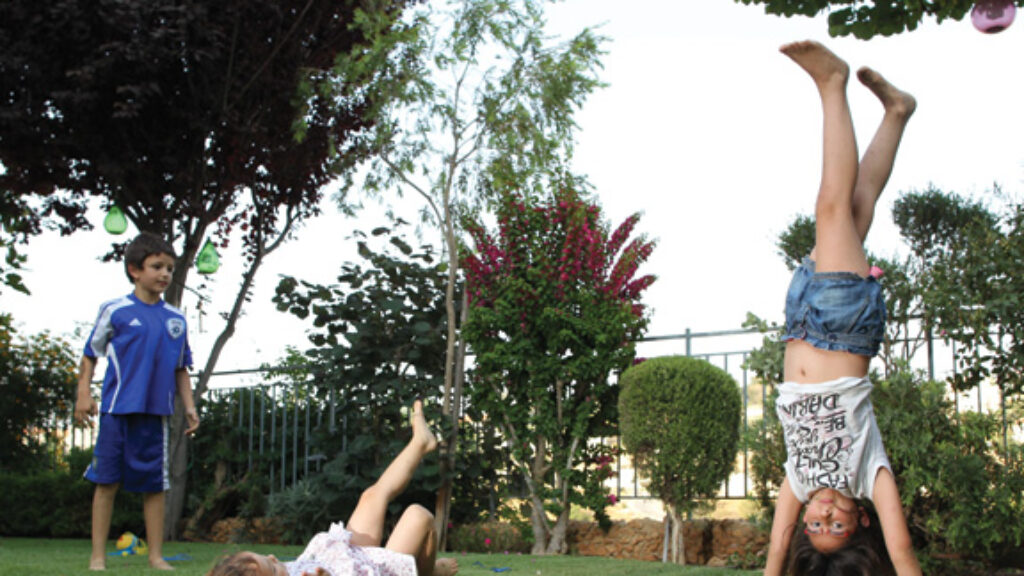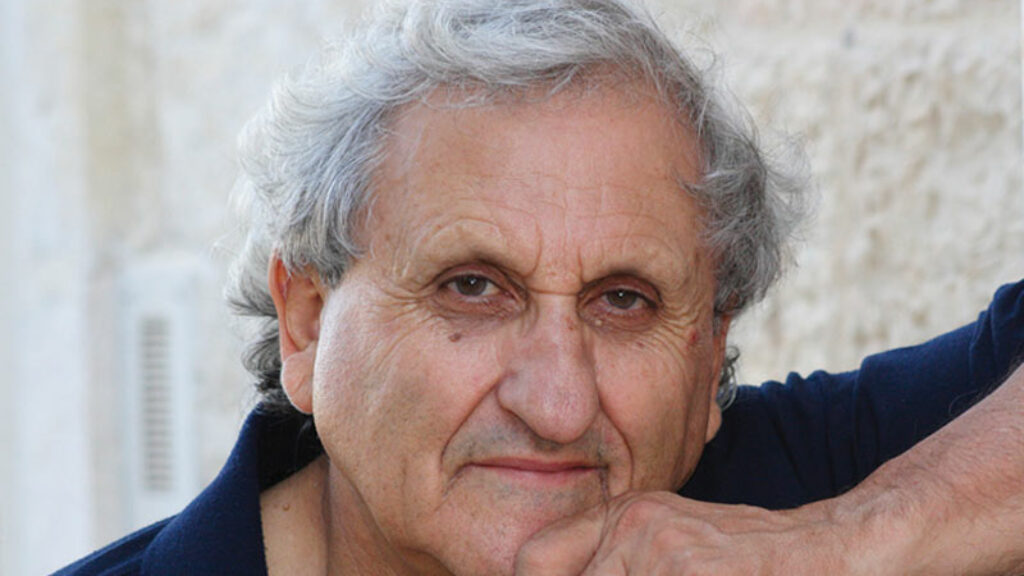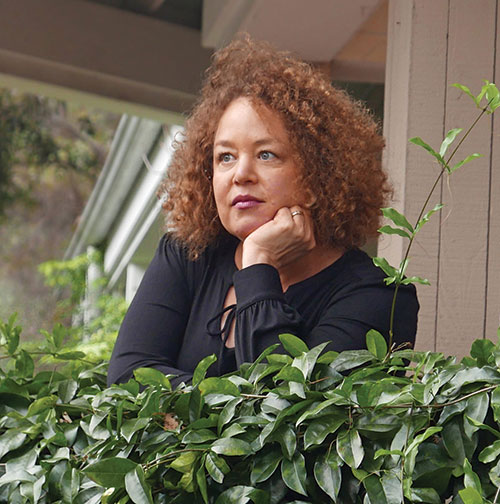As American as Augie March
In the preface to Shanim tovot (Happy New Years), published earlier this year, the editor, Dr. Gabriela Sadan (Sadovnik), informs us that the main text has “no literary value whatsoever.” But then Sadan, a prominent academic who researches contemporary American feminist thought and women’s migration history, observes that in our capitalist and patriarchal society, literary value itself is an illusion, merely a register of oppressive power relations. Nevertheless, she affirms that Shanim tovot merits our attention as “a historical and ideological document.”
What is this “historical and ideological document”? Written in Hebrew, Shanim tovot comprises the annual Jewish New Year’s letters written by Leah Zuckerman over the span of a half-century, from 1966 to 2016, to her former classmates in the Israeli women’s teacher training seminar from which she graduated before going to work and live in the United States. Zuckerman uses these letters to report on the events of each year of her life in America and to attempt to maintain a connection with her Israeli roots.
Sadan may be tone-deaf and tendentious, but she is correct that the text before us “offers” a rare vantage point onto both Jewish life in America and constructions of Israeli identity. As Zuckerman marries, divorces, changes careers several times and raises children, Sadan is also correct to see these fifty-one letters as an unconscious chronicle of gender relations and power and class dynamics. It should be said, though, that both Zuckerman and Sadan are the inventions of Israeli novelist Maya Arad, and Shanim tovot is, in fact, a brilliant and moving epistolary Hebrew novel told over five decades, from Leah’s arrival in Massachusetts to teach Hebrew at a Jewish day school to her autumn years in California.
Arad’s narrative mischievousness should be no surprise by now. The author of eight novels and two collections of long fiction, Arad has repeatedly married the metafictional play of a Nabokov with the moral warmth of a Jane Austen, producing several Hebrew bestsellers in the process. Some of her books turn wickedly on the egos and alter egos of writers, like her previous novel Kinat sofrot (Writers Envy), about a frustrated writer whose latest book is short-listed for Israel’s premier literary prize, the Sapir (more on that below). Arad’s 2016 Me-ahorei ha-har (Behind the Mountain) is an Agatha Christie–style murder mystery with a group of Israelis in an isolated California ski lodge, told from the point of view of an academic who researches detective fiction and delivers lectures on the tropes and structures of mystery novels as the mystery unfolds. Arad’s 2003 debut novel, Makom acher ve-ir zarah (Another Place, a Foreign City)—a novel-in-verse written in intricate sonnets, like Pushkin’s Eugene Onegin—was also nominated for a Sapir Prize.
Nor should we be surprised at the American setting of Arad’s new novel. She grew up in Israel and met her husband during her army service, but for more than two decades they have made their home and raised their children in Palo Alto, thanks to teaching positions at Stanford University. From its college campuses to Silicon Valley, Northern California is of course home to numerous Israelis, and Arad’s Israeli American fictions are marvelously attentive to both the pathos of immigrant alienation and the anthropology of the left coast’s laptop class.
Shanim tovot is Arad’s most ambitious portrait to date of the Israeli in America and, in many ways, of mainstream American Jewry as a whole. Sent by her program director to teach Hebrew in America in 1967, the young and alarmingly attractive Leah Moskowitz is fascinated by American luxury (televisions, cars, air-conditioning, all so different from then-spartan Israel) and American Judaism (the Conservative congregation in which she teaches Sunday school is “more like a social club” than a synagogue, she explains in one letter).
Leah marries an accountant, becomes a Zuckerman, and has two boys, Jonathan and Ari. This marriage is one of a lifelong series of bad romantic decisions, as her husband, Jeffrey, turns out to be a scoundrel and addict. They divorce, leaving her with two small children, debts, and no support. In the early 1980s, she moves to California and witnesses the growth—and later, crash—of the dot-com world, finds a kind of calling in real estate sales, and takes periodic stabs at journalism and creative writing. (In her seventies, Leah takes a Hebrew-language creative writing class at a Bay Area Jewish community center taught by another Israeli named Maya Arad.)
Arad uses Leah’s annual Rosh Hashanah updates to fashion a story and life so funny, so touching, and so subtly surprising that we feel that Arad’s character is real. Year by year we witness all the ordinary—and sometimes extraordinary—struggles that accompany an immigrant, a wife, a mother, a divorcée, a businesswoman, and finally a grandmother.
Each letter brims with ironies, sometimes amusing, sometimes heartbreaking. We often see Leah’s personal disasters coming before she does, whether the collapse of her marriage or the 2008 financial crash. We know her son Jonathan is gay long before she is able to admit it. Even within each letter we get a juxtaposition between the “official report” of her life to the whole group of seminar graduates and then a private postscript, sometimes longer than the letter, to Mira, Leah’s best friend in the group to whom she is able to confide more intimate and painful details.
Not the least of these ironies is Leah’s frequently expressed expectation that she will move back to Israel soon, and, later, that her children will of course speak Hebrew as well as English and feel their mother’s connection to Israel. When Jonathan is four, she writes to her former classmates:
Some of you have asked if Jonathan speaks Hebrew, so I am happy to report he does. He has a quick grasp and feeling for languages, even if his English is naturally better. I want to teach him to read in Hebrew (he already knows English letters and can read so many words), but Jeff thinks he’s too young and maybe he’s right.
Little Jonathan’s Hebrew ability is one of Leah’s many exaggerations to her friends. The book ends with a moving recollection by Jonathan of his mother, which we are told has been translated from English since he knows little Hebrew and cannot even read his mother’s letters as we have done. This is followed by a note from Ella, Leah’s eight-year-old granddaughter, printed in English.
The great miracle of this novel is the way that slowly, naturally, over decades, it leads to the emergence of an older woman who can reflect with wisdom on her life and its failures and successes. Arad’s protagonist begins the book seeming shallow, flirtatious, and endlessly self-exculpatory, a little bit like an Israeli Lorelei Lee from Gentlemen Prefer Blondes. She certainly uses her sex appeal to get herself out of jams, jams that are often a result of that sex appeal in the first place.
But Arad brilliantly peels back layers of Leah’s character, showing her complexity and depth as well as the extent to which her reliance on the attention of men has been a means of defense and a response to trauma. By the end of the book, the details that we have accumulated along the way are reassembled and made clear for us by Leah herself, who now understands her own life: as a Holocaust survivor from Romania, an immigrant to Israel at the age of eight, a girl mocked for her foreign ways, a teenager preyed upon because of her looks, and, finally, as a would-be American trying to justify her existence to the Israeli schoolmates who may have been partly responsible for her exile in the first place.
In one of her final letters, she says:
Why am I writing all this anyway? Why have I been writing for five decades, year after year? I wanted to remind you all that I’m alive. So you don’t forget me. So that I don’t disappear in America as if I had never existed.
Arad has set up the entire book to build toward a series of late-life revelations and admissions on the part of Leah, and her son, that transform everything we have read and will have many readers reaching for the Kleenex (I was just able to resist tears).
It is obligatory these days when talking about Arad or other Israeli writers residing in America to note that they are no longer eligible for Israel’s prestigious Sapir Prize. The prize rules were changed a few years ago to exclude Hebrew works by Israelis living abroad. I understand the impulse behind the change. Yes, literature spills over national borders, and Hebrew has had an illustrious international history. On the other hand, culture is rooted, and one hopes that Israeli literature is part of a national project, not a global concern like Coca-Cola. In any case, I have no doubt that Shanim tovot would be a finalist for the Sapir Prize were it eligible. However, what strikes me as the truly unfortunate injustice is not that Shanim tovot cannot win a Sapir Prize because its author lives in Palo Alto but rather that it can’t win a National Jewish Book Award because it is written in Hebrew.
Arad’s Leah Zuckerman is as American as Augie March or Huck Finn, repeatedly knocked down by life yet always confident that her fortune and happiness are around the corner. And she is deeply, richly Jewish, a wanderer and storyteller, who ultimately finds her life’s true meaning in her granddaughter. Shanim tovot is easily one of the best works of Jewish American fiction produced this century. I do not wonder if it deserves a prize but rather if there is a prize that deserves the book.
Comments
You must log in to comment Log In
Suggested Reading

Reader, I Adopted Him
Maya Arad's latest work is minor literature in the sense that Jane Austen—a model for Arad—is minor because she focuses on human character rather than on the Napoleonic wars and the religious crisis of the Enlightenment.
Riding Leviathan: A New Wave of Israeli Genre Fiction
A new batch of Israeli fantasy books may not contain Narnias, but they pound on the wardrobe, rattling the scrolls inside.

Blocked Desire
The Tunnel, A. B. Yehoshua’s most recent novel, written as he moved into his eighties, does not exhibit any traits of what some literary critics have called “the style of old age,” but its unusual subject, incipient dementia, is patently a concern of old age.
The Ruined House (An Excerpt)
In 2014 Ruby Namdar won the prestigious Sapir Prize for his novel Ha-bayit asher necherav, the first time in the award’s history that it went to a writer not living in Israel. On November 7, 2017, Harper released it under the title The Ruined House: A Novel, in an English translation by Hillel Halkin. The Jewish Review of Books is pleased to present this excerpt from the novel’s opening.

Juliana Geran Pilon
This sounds extraordinary, and much needed NOW. Someone please translate it!!
Michael Milgrom
Excellent review. My book group, composed mostly of Israelis who have lived in the U.S. for a long time, was sharply divided over the book. Some thought there was nothing new or interesting in it while others, like me and this reviewer, found it moving. I cannot understand why Maya Arad's work has not been translated. But, I'm pleased that JRB is reviewing the occasional novel in Hebrew.
Michael Weingrad
I am happy to report that New Vessel Press will be bringing out two of Maya Arad's novels in English translation (by the superb Jessica Cohen). The Hebrew Teacher is coming out in 2024, and--hooray!--Happy New Years will be published in 2025.
Thanks for the kind words. Reviews of Hebrew books in the Jewish Review of Books are important for bringing these books to the attention of American publishers.